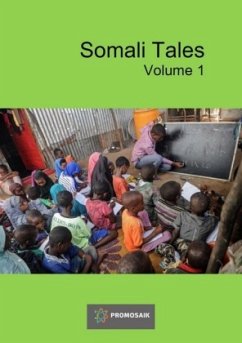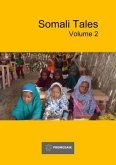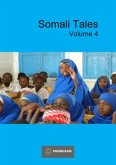Somali people love telling stories. Storytelling constitutes an integral part of a living oral tradition. A parallel movement of writing down folktales takes place when people collect and translate stories, making them available to people of other cultures. Folktales, more than any other stories, are implicitly seen as offering keys to the culture where they originated. The speed of this process of writing down these stories depends on how the written stories are spread, and how the balance between written and oral culture generally evolves in the society.
A totally new stage in the process of writing down stories takes place in a country like Somalia when people have to flee their country for various reasons, including civil war, natural disasters, and starvation. In 1972, the government of Somalia decided on a form of writing using Latin characters, with some special sound/letter combinations.
Thanks for this bilingual book published by ProMosaik non-Somalis can also enjoy and marvel at these stories and learn more about Somalia and its rich oral culture. First volume of the ProMosaik collection of Somali fables.
A totally new stage in the process of writing down stories takes place in a country like Somalia when people have to flee their country for various reasons, including civil war, natural disasters, and starvation. In 1972, the government of Somalia decided on a form of writing using Latin characters, with some special sound/letter combinations.
Thanks for this bilingual book published by ProMosaik non-Somalis can also enjoy and marvel at these stories and learn more about Somalia and its rich oral culture. First volume of the ProMosaik collection of Somali fables.








